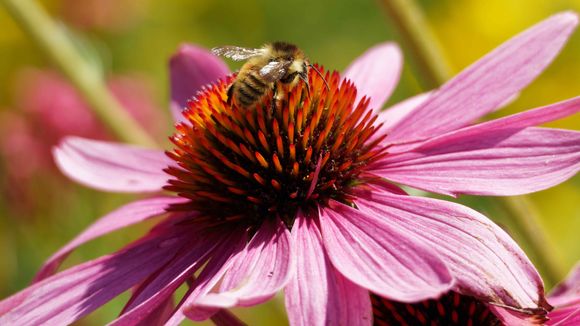Causes, Symptoms, and Risk Factors of the Common Cold and Flu
The common cold and flu are caused by a variety of viruses, with the most common culprit being the rhinovirus for colds and the influenza virus for the flu. Both infections can cause a range of symptoms, including fever, sore throat, cough, nasal congestion, and muscle aches. While most people recover from the cold and flu without complications, certain groups such as young children, the elderly, and individuals with weakened immune systems may be at a higher risk for severe symptoms or complications.
Echinacea's Immune-Boosting Potential
- Echinacea, a group of flowering plants native to North America, has been used for centuries by indigenous people to treat a wide range of ailments. Recent scientific research has provided support for the traditional use of Echinacea in enhancing the immune system's ability to fight off infections.
- A study published in the journal "Phytotherapy Research" in 2012 found that Echinacea extracts reduced the duration and severity of cold symptoms in participants. In this double-blind, randomized, placebo-controlled study, participants who took Echinacea extracts experienced a shorter duration of cold symptoms by 1.4 days, compared to those who received a placebo.
- Furthermore, a review of 14 studies conducted by the Cochrane Database of Systematic Reviews in 2014 concluded that Echinacea products might be effective in preventing colds, reducing the risk by 10 to 20 percent. Another study published in "Virology Journal" in 2009 found that Echinacea purpurea extract had antiviral effects against the influenza virus, suggesting that it could potentially help in the prevention and treatment of the flu as well.

Photo by Nicolas Beuret on Unsplash
Echinacea Recipes
Incorporating Echinacea into your daily routine can be a delicious and easy way to support your immune system. Here are some simple recipes to get you started:
- Echinacea Tea: Steep one teaspoon of dried Echinacea root or leaves in one cup of boiling water for 10-15 minutes. Strain and enjoy with honey or lemon, if desired.
- Echinacea Smoothie: Blend one cup of your favorite frozen fruit, one cup of spinach or kale, one cup of milk or a milk alternative, and one teaspoon of Echinacea powder until smooth. Enjoy immediately.
- Echinacea Honey: Mix one tablespoon of Echinacea powder into half a cup of raw honey. Enjoy a spoonful on its own or use it as a natural sweetener in tea, oatmeal, or yogurt.
Allergies and Medical Advice
Although Echinacea is generally considered safe, some individuals may experience allergic reactions, particularly those with a history of allergies to plants in the daisy family. Always consult with a healthcare professional before starting any new supplement or herbal remedy.

Photo by Joanna Kosinska on Unsplash
Questions and Answers
Q: How long should I take Echinacea for cold or flu prevention?
A: While there's no definitive answer, many experts recommend taking Echinacea for two to eight weeks, with a one to two-week break in between cycles to maintain its effectiveness.
Q: Can I take Echinacea while I'm pregnant or breastfeeding?
A: There is limited research on the safety of Echinacea during pregnancy and breastfeeding. It's best to consult with your healthcare provider before using Echinacea during these times.
Q: Are there any side effects of using Echinacea?
A: Echinacea is generally well-tolerated, but some individuals may experience side effects such as stomach upset, dizziness, or rash. If you experience any adverse effects, discontinue use and consult your healthcare provider.
Q: Can Echinacea interact with medications?
A: Echinacea may interact with certain medications, such as immunosuppressants and certain cancer drugs. Always consult with your healthcare provider before using Echinacea if you are taking prescription medications.
Q: Is Echinacea suitable for children?
A: Some studies suggest that Echinacea may be safe and effective for children over the age of two. However, it's important to consult with a pediatrician before giving Echinacea to children, as the appropriate dosage may vary based on age and weight.









